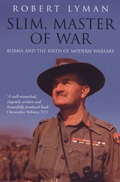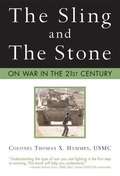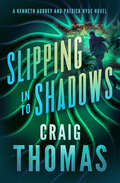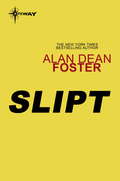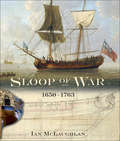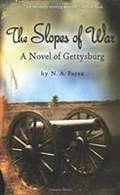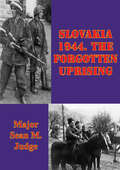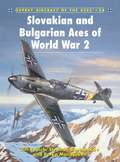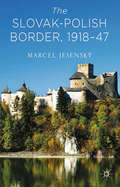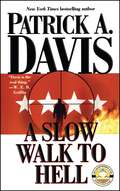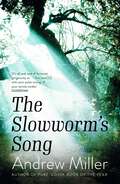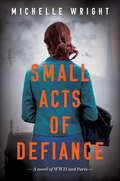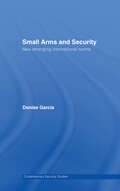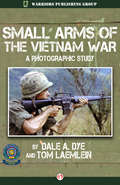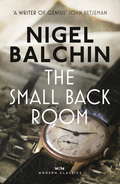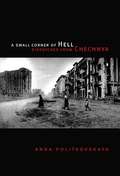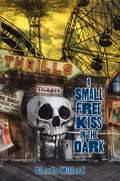- Table View
- List View
Slim, Master of War: Burma, 1942-5
by Robert LymanGeneral W J Slim achieved something no one believed possible. Appointed to lead what was soon to become the famous 'forgotten' 14th Army in 1943, at a time when British units in the Far East were defeated and demoralised, within six months he had dealt the first death blow to the Japanese Army. This - the battle of Kohima and Imphal - was the largest single defeat of the Japanese on land in the Second World War and led to their complete destruction in Burma by August 1945. So, how did he do it? And why is he not better known? <p><p> Slim did not fit the British military mould. Like Patton he was a manoeuvrist: he fought differently, seeking victory by cunning and guile, starkly different from how the British Army foughts its wars at the time. Like the legendary soldier T E Lawrence, Slim was an exponent - long before it became fashionable - of mission command, giving his subordinates their head and encouraging initiative and imagination at the lowest levels of command. <p> But above all Slim was a soldier's general - it wasn't just his men who revered him, but his equals too: Mountbatten, with whom he bonded in a way unparalleled in South East Asia Command, and Stilwell, another maverick, who would serve under no other British commander but him. They were not wrong; he was a singular man, a supreme commander, who remains worthy of our respect.
The Sling and the Stone: On War in the 21st Century
by Thomas X. Hammesaccording to colonel thomas hammes, the US is still fighting the last war -- the third-generation war. We believe that high tech weaponry and high tech skills alone can defeat our enemies. But we are wrong. For the enemy has moved into the fourth generation of warfare, and we are not prepared to fight it. Using examples as ancient as Greece and as modern as today's headlines in Iraq, Hammes lays out his arguments cogently and logically and offers ways we can prepare for this new 4GW.
Slipping into Shadow (The Kenneth Aubrey & Patrick Hyde Series)
by Craig ThomasNew York Times–Bestselling Author: A British MP and an intelligence agent suspect a vast conglomerate of drug crimes—but must live long enough to prove it . . . In the jungles of northern Burma, land has been cleared and construction of a large, luxurious resort is well underway. At the same time, Burmese heroin has suddenly started pouring into Western nations. British agent Patrick Hyde suspects it isn&’t a coincidence. Is the worldwide hotel chain that&’s building the resort using its casinos to launder drug money? How is the Chinese government involved? And is there any connection to the recent murder of a Burmese man—a constituent of British MP Marion Pyott? Hyde must follow the tangled threads and keep both himself and Marion alive in this gripping novel of passion, politics, and espionage from the renowned author of Firefox and A Different War. &“When it comes to keeping the story moving and stoking up the excitement, Mr. Thomas knows his business.&” —The New York Times
Slipt
by Alan Dean FosterOld Jake Pickett is a strange one.He can turn bullets to dust or collapse skyscrapers with his mind. But all he really wants to do with his "magic" is entertain the poor kids who live, like him, near the chemical dump. Or talk telepathically with his crippled niece, Amanda.Then a giant company decides that the only way to cover up their mess is to eliminate the people who have been affected, for better or worse, by the seeping industrial wastes. Now Jake and Amanda are running for their lives. And ours.
Sloop of War (Richard Bolitho #6)
by Alexander KentThe year is 1778, the ship is the HMS Sparrow, England's finest sloop of war, and the captain is Richard Bolitho, sailing his command into the fury of battle. The American Revolution has turned the Atlantic coast into a refuge for privateers and marauding French war ships--when the Sparrow comes upon the scene, bloody action soon follows. It is up to young Bolitho to fight the colonial rebels on the one hand, and to stave off the treachery of a beautiful woman and the dangerous incompetence of a senior officer with the other.
The Sloop of War, 1650–1763: 1650-1763
by Ian MclaughlanThis is the first study in depth of the Royal Navy's vital, but largely ignored small craft. In the age of sail they were built in huge numbers and in far greater variety than the more regulated major warships, so they present a particular challenge to any historian attempting a coherent design history. However, for the first time this book charts the development of the ancillary types, variously described in the 17th century as sloops, ketches, brigantines, advice boats and even yachts, as they coalesce into the single 18th-century category of Sloop of War. In this era they were generally two-masted, although they set a bewildering variety of sail plans from them. The author traces their origins to open boats, like those carried by Basque whalers, shows how developments in Europe influenced English craft, and homes in on the relationship between rigs, hull-form and the duties they were designed to undertake. Visual documentation is scanty, but this book draws together a unique collection of rare and unseen images, coupled with the author's own reconstructions in line drawings and watercolour sketches to provide the most convincing depictions of the appearance of these vessels. By tackling some of the most obscure questions about the early history of small-boat rigs, the book adds a dimension that will be of interest to historians of coastal sail and practical yachtsman, as well as warship enthusiasts.
The Slopes Of War
by Norah PerezBuck Summerhill is a young soldier from West Virginia. He faces the horrors of the battle of Gettysburg knowing that his two cousins, Custis and Mason, may be fighting against him in the Army of Northern Virginia. The Slopes of War is a fast-paced, panoramic story of a family divided in loyalty but equally affected by the dangers and sometimes senseless brutality of battle.
Slovakia 1944. The Forgotten Uprising
by Major Sean M. JudgeThe Slovak National Uprising of 1944 is ignored and/or treated as a non-event in the Western historiography of World War II. The political climate during World War II and the Cold War that followed obscured and distorted the history and understanding of this revolt. The raising of the Iron Curtain in the 1990s removed the veil of secrecy from much of Eastern Europe's wartime history, and Western historians are exploring the new resources available, but coverage of Slovakia's story and uprising remains very limited. This work aims to fill some of the void.Fully understanding the uprising requires an analysis of a number of different viewpoints in order to avoid capture by the political views of the parties involved: the Slovaks, the Germans, or the Soviets. Each group had different plans and goals: the Slovaks found themselves precariously between the Allies and Germany, the Germans fought to maintain their strategic position in central Europe while the Soviets hoped to expand their influence through eastern and central Europe. Each group naturally interpreted events differently and acted accordingly. Ultimately the Germans crushed the Slovak rebellion.Events surrounding the uprising remain cloudy to this day. The Slovaks won only short-term political gains, but their Jewish and ethnic German populations paid a heavy price. The Germans won their last significant victory in the war and maintained their presence in Slovak territory until the very end. The Soviet Union suffered significant casualties, but saw Communist influence increase in the region. Recriminations swirl around the lack of Allied support and the duplicity of Stalin. Western historians have excluded coverage of the uprising in part to avoid embarrassment. Significantly, the Slovaks remain at odds among themselves about the importance and the meaning of the uprising.
Slovakian and Bulgarian Aces of World War 2
by John Weal Jiri RajlichIn 1939, Slovakia signed a protection agreement with the German Reich and joined the attack on Poland, where its Avia B-534-equipped fighter squadrons claimed their first kills. In October 1942, having made do with obsolete aircraft, the Slovaks were equipped with Bf 109Es and eventually acquired 43 Messerschmitt fighters. The Slovaks would claim over 215 kills. Although it supported German efforts in Yugoslavia and Greece, Bulgaria did not declare war on Russia. First seeing action in August 1943, Bulgarian fighter pilots used their Bf 109Gs to good effect. From late 1943 through to mid-1944, the Bulgarian pilots attempted to defend the country from American bombers, and Stoyanov and Bochev made ace during this period.
The Slovak–Polish Border, 1918-1947
by Marcel JesenskýThe first English-language monograph on the Slovak-Polish border in 1918-47 explores the interplay of politics, diplomacy, moral principles and self-determination. This book argues that the failure to reconcile strategic objectives with territorial claims could cost a higher price than the geographical size of the disputed region would indicate.
Slow Dance On the Killing Ground
by Lenox CramerThis is a story about Special Forces, the trials and tribulations of its members. Excellent action adventure.
A Slow Walk to Hell
by Patrick A. DavisNew York Times bestselling author Patrick A. Davis returns with an electrifying novel of murder, the military, and one man's search of the truth. Air Force investigator Martin Collins is used to bucking the system in the name of justice. But when he is called on to investigate the torture-style slaying of Major Franklin Talbot, Collins is embroiled in the most controversial case of his career. Evidence suggests that the deadly act was a hate crime -- and that Talbot was hiding a shocking secret that may have sealed his fate. Even more shocking are the suspects: all high-ranking officers -- including Talbot's own uncle, a leading presidential candidate. Traversing a politically charged minefield of buried secrets, Martin is targeted by powerful forces that cannot afford to let him identify Talbot's killer. And when he finally uncovers the devastating truth, Martin will be forced to make a fateful decision between catching a sadistic murderer -- and destroying the lives of countless innocent men.
The Slowworm's Song
by Andrew MillerBy the Costa Award-winning author of PURE, a profound and tender tale of guilt, a search for atonement and the hard, uncertain work of loving. An ex-soldier and recovering alcoholic living quietly in Somerset, Stephen Rose has just begun to form a bond with the daughter he barely knows when he receives a summons - to an inquiry into an incident during the Troubles in Northern Ireland. It is the return of what Stephen hoped he had outdistanced. Above all, to testify would jeopardise the fragile relationship with his daughter. And if he loses her, he loses everything. Instead, he decides to write her an account of his life; a confession, a defence, a love letter. Also a means of buying time. But time is running out, and the day comes when he must face again what happened in that faraway summer of 1982.(P) 2022 Hodder & Stoughton Limited
The Slowworm's Song
by Andrew Miller'ANDREW MILLER'S WRITING IS A SOURCE OF WONDER AND DELIGHT' Hilary Mantel 'ONE OF OUR MOST SKILFUL CHRONICLERS OF THE HUMAN HEART AND MIND' Sunday Times'Sublime' Independent 'Masterful' Sunday Times 'Beautiful' Spectator A profound and tender tale of guilt, the search for atonement and the hard, uncertain work of loving from the critically acclaimed author of PureAn ex-soldier and recovering alcoholic living quietly in Somerset, Stephen Rose has just begun to form a bond with Maggie, the daughter he barely knows, when he receives a summons - to an inquiry in Belfast about an incident during the Troubles, which he hoped he had long outdistanced. Now, to testify about it could wreck his fragile relationship with Maggie. And if he loses her, he loses everything. He decides instead to write her an account of his life - a confession, a defence, a love letter. Also a means of buying time. But as time runs out, the day comes when he must face again what happened in that distant summer of 1982. PRAISE FOR ANDREW MILLER 'Unique, visionary, a master at unmasking humanity' Sarah Hall 'A writer of very rare and outstanding gifts' Independent on Sunday 'A highly intelligent writer, both exciting and contemplative' The Times 'A wonderful storyteller' Spectator
The Slowworm's Song
by Andrew Miller'ANDREW MILLER'S WRITING IS A SOURCE OF WONDER AND DELIGHT' Hilary Mantel 'ONE OF OUR MOST SKILFUL CHRONICLERS OF THE HUMAN HEART AND MIND' Sunday Times'Sublime' Independent 'Masterful' Sunday Times 'Beautiful' Spectator A profound and tender tale of guilt, the search for atonement and the hard, uncertain work of loving from the critically acclaimed author of PureAn ex-soldier and recovering alcoholic living quietly in Somerset, Stephen Rose has just begun to form a bond with Maggie, the daughter he barely knows, when he receives a summons - to an inquiry in Belfast about an incident during the Troubles, which he hoped he had long outdistanced. Now, to testify about it could wreck his fragile relationship with Maggie. And if he loses her, he loses everything. He decides instead to write her an account of his life - a confession, a defence, a love letter. Also a means of buying time. But as time runs out, the day comes when he must face again what happened in that distant summer of 1982. PRAISE FOR ANDREW MILLER 'Unique, visionary, a master at unmasking humanity' Sarah Hall 'A writer of very rare and outstanding gifts' Independent on Sunday 'A highly intelligent writer, both exciting and contemplative' The Times 'A wonderful storyteller' Spectator
Small Acts of Defiance: A Novel of WWII and Paris
by Michelle Wright"In Small Acts of Defiance, Michelle Wright paints a beautifully intimate portrait that celebrates the courage and resilience of the human spirit."— Jane Harper, author of The SurvivorsA stunning debut WWII novel from award-winning short story writer Michelle Wright, about the small but courageous acts a young woman performs against the growing anti-Jewish measures in Nazi-occupied Paris.“Doing nothing is still a choice. A choice to stand aside and let it happen.”January 1940: After a devastating tragedy, young Australian woman Lucie and her mother Yvonne are forced to leave home and flee to France. There they seek help from the only family they have left, Lucie’s uncle, Gérard.As the Second World War engulfs Europe, the two women find themselves trapped in German-occupied Paris, sharing a cramped apartment with the authoritarian Gérard and his extremist views. Drawing upon her artistic talents, Lucie risks her own safety to engage in small acts of defiance against the occupying Nazi forces and the collaborationist French regime – illustrating pro-resistance tracts and forging identity cards. Faced with the escalating brutality of anti-Jewish measures, and the indifference of so many of her fellow Parisians, Lucie must decide how far she will go to protect her friends and defend the rights of others before it’s too late.
Small Arms and Security: New Emerging International Norms (Contemporary Security Studies)
by Denise GarciaThis book examines the emergence of new international norms to govern the spread of small arms, and the extent to which these norms have been established in the policies and practices of states, regions and international organizations. It also attempts to establish criteria for assessing norm emergence, and to assess the process of norm development by comparing what actually happens at the multilateral level. If norm-making on small arms and related multilateral negotiations have mostly dealt with ‘illicit arms’, and most of the norms examined here fall on the arms supplier side of the arms equation, the author argues that the creation of international norms and the setting of widely agreed standards amongst states on all aspects of the demand for, availability, and spread of both legal and illegal small arms and light weapons must become central to the multilateral coordination of policy responses in order to tackle the growing violence associated with small arms availability. Small Arms and Security will be of interest to researchers and professionals in the fields of peace and conflict studies, global governance, international security and disarmament.
Small Arms of the Vietnam War
by Dale A. Dye Tom LaemleinWith modern military emphasis on whiz-bang weapons technology and the constant quest for things that make a bigger bang on the battlefield, it's easy to forget that at the dark heart of war stands an infantryman and his individual weapons. Those who understand warfare from research or from personal experience generally realize this about the conflicts that have plagued mankind since the dawn of time. Infantry weapons--often referred to as small arms--have fascinated soldiers and scholars for decades as they are the most personal aspects of combat. Small arms come into play when contact is close and potentially lethal. This was particularly true during the long, frustrating war in Vietnam, but much of the focus in studying that conflict has been either on aerial weapons--strike aircraft or armed helicopters--or on the originally much-maligned M16 rifle. There were huge numbers of other weapons used by both sides, but they are often ignored and rarely seen being used in combat action. This book solves that problem. Divided into easily digestible sections and preceded by cogent discussions of each weapon type, the authors have presented an intriguing collection of photographs that depict the primary small (and not so small) infantry arms most common on Vietnam battlefields. There are rare and stirring images here that depict what it was like to fight in the jungle-covered mountains and in the rice paddies. Viewing these images is like studying a primer about one of America's longest and deadliest wars.
Small Arms Survey 2003: Development Denied
by Small Arms SurveyThe Small Arms Survey is now recognized as the principle international source of impartial and reliable information on all aspects of small arms. Its blend of information and analysis makes it an indispensable resource for policy-makers, officials and non-governmental organizations.
Small Arms Survey 2012
by Small Arms Survey GenevaThe Small Arms Survey 2012 seeks to increase our scrutiny of what is changing, and not changing, in relation to armed violence and small arms proliferation. Chapters on firearm homicide in Latin America and the Caribbean, drug violence in selected Latin American countries and non-lethal violence worldwide illustrate that security is a moving target; armed violence, both lethal and non-lethal, continues to undermine the security and wellbeing of people and societies around the world. The goal of curbing small arms proliferation, embodied in the UN Programme of Action, appears similarly elusive. Chapters on illicit small arms in war zones, trade transparency, Somali piracy and the 2011 UN Meeting of Governmental Experts highlight some of the successes, but also the continuing challenges, in this area. Country studies on Kazakhstan and Somaliland, along with the final instalment of the authorized transfers project, round out the 2012 edition.
Small Arms Survey 2014
by Small Arms SurveyThe Small Arms Survey 2014 considers the multiple roles of women in the context of armed violence, security, and the small arms agenda. The volume's thematic section comprises one chapter on violence against women and girls - with a focus on post-conflict Liberia and Nepal - and another on the recent convergence of the small arms agenda with that of women, peace and security. Complementing these chapters are illustrated testimonies of women with experience as soldiers, rebels and security personnel. The 'weapons and markets' section assesses the potential impact of the Arms Trade Treaty, presents the 2014 Transparency Barometer and an update on the authorized small arms trade, and analyses recent ammunition explosions in the Republic of the Congo. Additionally, it examines ammunition circulating in Africa and the Middle East, maps the sources of insurgent weapons in Sudan and South Sudan, and evaluates crime gun records in the United States.
The Small Back Room
by Nigel BalchinA true modern classic, THE SMALL BACK ROOM is a towering novel of the Second World War.Sammy Rice is a weapons scientist, one of the 'back room boys' of the Second World War. A crippling disability has left him cynical and disillusioned - he struggles with a drink problem at home, and politics and petty pride at work. Worse still, he fears he is not good enough for the woman he loves.The stakes are raised when the enemy begin to drop a new type of booby-trapped bomb, causing many casualties. Only Sammy has the know-how to diffuse it - but as he comes face to face with real danger, all his old inadequacies return to haunt him.Can he, at last, prove his worth and put his demons to rest?
The Small Back Room
by Nigel BalchinA true modern classic, THE SMALL BACK ROOM is a towering novel of the Second World War.Sammy Rice is a weapons scientist, one of the 'back room boys' of the Second World War. A crippling disability has left him cynical and disillusioned - he struggles with a drink problem at home, and politics and petty pride at work. Worse still, he fears he is not good enough for the woman he loves.The stakes are raised when the enemy begin to drop a new type of booby-trapped bomb, causing many casualties. Only Sammy has the know-how to diffuse it - but as he comes face to face with real danger, all his old inadequacies return to haunt him.Can he, at last, prove his worth and put his demons to rest?
A Small Corner of Hell: Dispatches from Chechnya
by Anna Politkovskaya Alexander Burry Tatiana TulchinskyChechnya, a 6,000-square-mile corner of the northern Caucasus, has struggled under Russian domination for centuries. The region declared its independence in 1991, leading to a brutal war, Russian withdrawal, and subsequent "governance" by bandits and warlords. A series of apartment building attacks in Moscow in 1999, allegedly orchestrated by a rebel faction, reignited the war, which continues to rage today. Russia has gone to great lengths to keep journalists from reporting on the conflict; consequently, few people outside the region understand its scale and the atrocities--described by eyewitnesses as comparable to those discovered in Bosnia--committed there.
A Small Free Kiss in the Dark
by Glenda MillardTwo young boys, an old tramp, a beautiful teenage dancer, and the girl's baby--ragtag survivors of a sudden war--form a fragile family, hiding out in the ruins of an amusement park. This complex and haunting exploration of life on the edge and what it takes to triumph over adversity is a story about the indomitable nature of hope.
